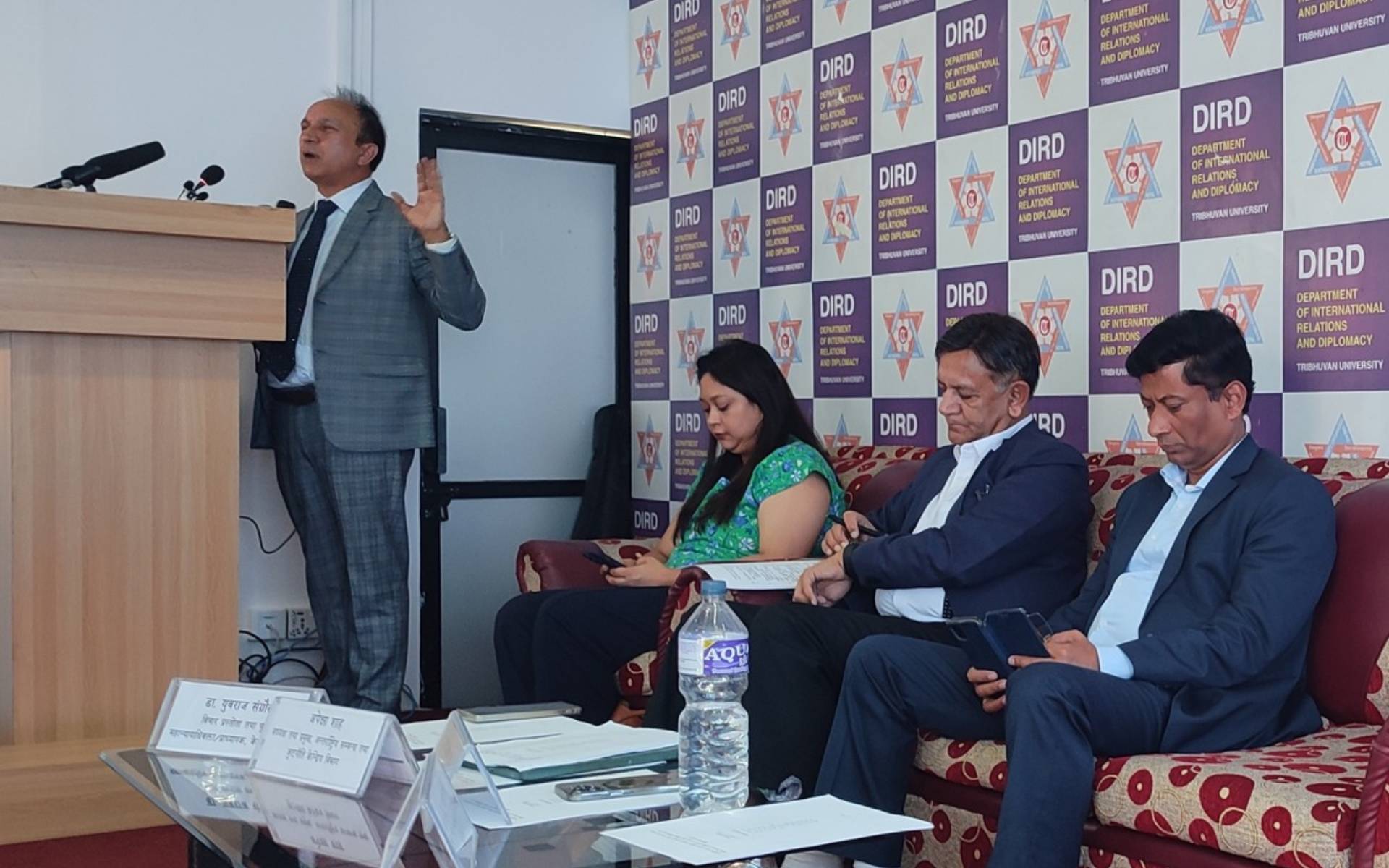
Kathmandu: A discussion program on “Nepal’s Political System and Foreign Policy after the Gen-Z Movement” was held at Tribhuvan University (TU) in Kirtipur, focusing on the need to reform Nepal’s diplomatic leadership and foreign policy. The event was organized by the International Relations Concerned Community Nepal and featured insights from experts and academics on the country’s foreign policy direction in the post–Gen-Z movement context.
Presenting a concept paper, Dr. Hari Prakash Chand highlighted the lack of subject-matter expertise in Nepal’s foreign policy leadership since 1990. He noted that 30 foreign ministers have been appointed in the past 35 years, with most lacking backgrounds in diplomacy or international affairs, which has weakened Nepal’s foreign policy framework.
Dr. Chand stressed that the same issue extends to diplomatic appointments abroad, including in the United States. He proposed that individuals with doctoral degrees in diplomacy or international relations, as well as foreign service officers with at least 15 years of experience, should be prioritized for leadership roles. He also emphasized the importance of experience in diplomatic missions and at least 10 years of research involvement in related fields.
TU Rector Prof. Dr. Khadga KC, speaking at the program, described the Gen-Z movement as a response to corruption, misgovernance, and lack of accountability. He said, “This movement reflects the dissatisfaction of youth who have raised their voices against inequality and injustice. What the country needs now is good governance and accountability.”
Similarly, former Attorney General and Professor of International Law Dr. Yubaraj Sangraula characterized the Gen-Z movement as an expression of political awakening among Nepali youth, saying, “This movement is not merely about violence or destruction; it represents the rise of a politically conscious generation.”
Former Chief Secretary and former Ambassador to China Leelamani Poudel also underscored the importance of reforming Nepal’s foreign policy, stating, “Protecting the country’s borders and strengthening diplomatic relations should remain Nepal’s top priority.”
The discussion explored key diplomatic challenges facing Nepal, the need for reform in the political system and foreign policy, and the role of the Gen-Z movement as a catalyst for youth-led transformation and change in the country’s governance and diplomacy.